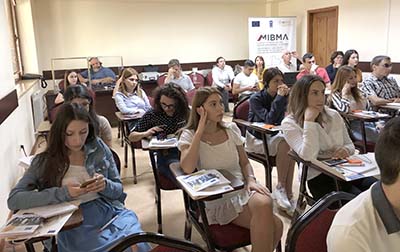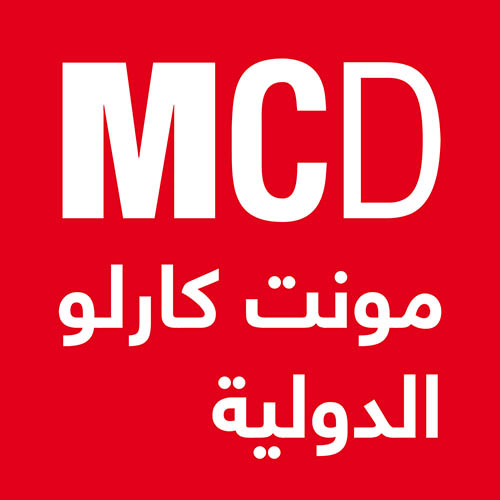Media Unlimited director Magda Abu-Fadil trained Arab News journalists on the finer points of newsroom management at the paper’s Riyadh and Jeddah headquarters, with follow-up mentoring covering the Misk Global Forum in the Saudi Arabian capital.
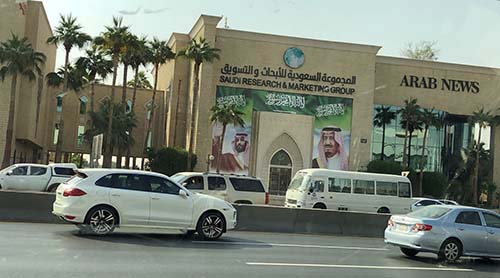
Arab News headquarters in Riyadh
The workshops in November 2019 included the evolution of organizational charts from traditional to digital integrated multimedia newsrooms, issues of leadership, the importance of optimizing technology, and having IT people, designers, data visualization artists, infographics, photo, video and illustration teams alongside journalists and editors.
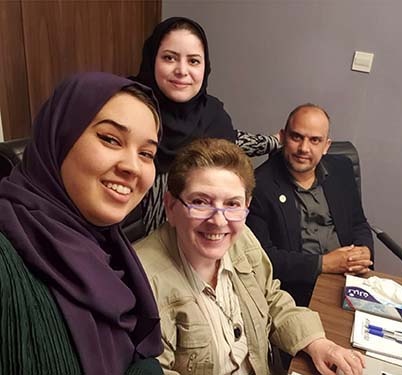
Magda Abu-Fadil with Arab News journalists in Riyadh
There was no escaping a requisite session on media ethics, notably in an era of alternative facts, deepfakes, disinformation, and the need for fact-checking in all newsrooms.
Journalists also learned about the importance of engagement with their audiences across various platforms. Almost each session had topic-related exercises.
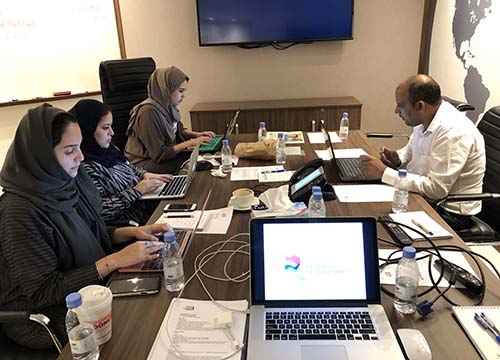
Arab News Riyadh team being drilled on newsroom management
Abu-Fadil used a session on social media to focus on how apps can be optimized to gather and double-check information and why journalists should live blog and live tweet at major events or while covering breaking news.
There was a session on photojournalism and how newsrooms handle graphic images and videos, violence, death and hate speech.

Preparing to cover and mentor Arab News journalists at the Misk Global Forum
Not to be ignored is the importance of mobile journalism (MoJo), which Abu-Fadil stressed is a cornerstone of most newsrooms today, meaning reporters should be able to report, interview, write, shoot pictures and videos, edit their work and, if need be, upload the material to the newsroom, or directly to a live platform, if they’re qualified and authorized to do so.

Misk Global Forum in Riyadh, Saudi Arabia
The workshop sessions were interspersed with several informative and how-to videos to help the trainees better understand the material’s context.
There were reminders on writing headlines, leads, nut graphs, dealing with numbers, interviewing techniques and covering major events.

Arab News journalists in Jeddah beavering away at writing and editing exercises
Other topics covered during the training included gamification, how young people consume news and comics journalism.

